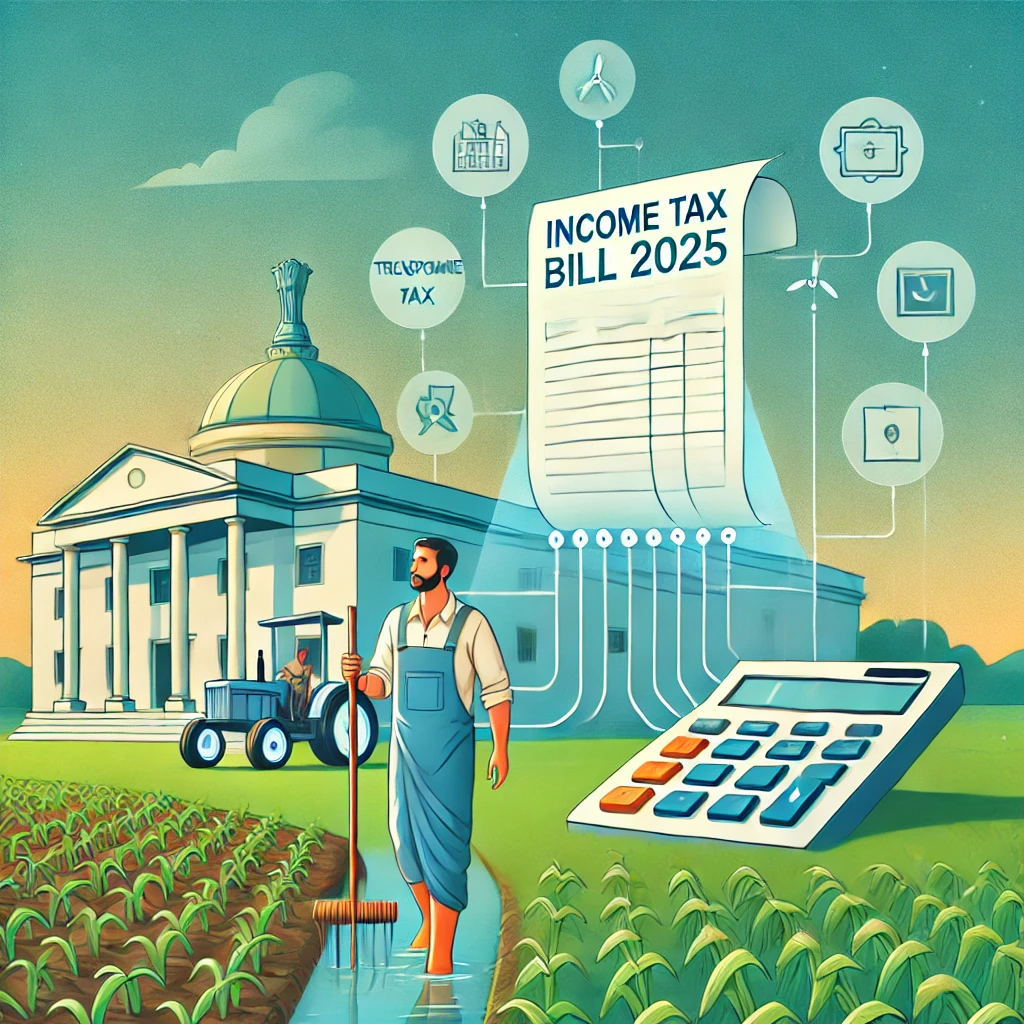The Income Tax Bill 2025 How It Affects Farmers
A breakdown of how the Income Tax Bill 2025 impacts agricultural income and tax exemptions for farmers in India.
Post last updated: February 13, 2025

The Income Tax Bill 2025: How It Affects Farmers
The Income Tax Bill 2025 is bringing big changes to how taxes work in India. One of the most talked-about topics is agricultural income. Farmers have always had tax exemptions, but some people were misusing these rules to avoid paying taxes. This new bill makes sure that real farmers keep their benefits while stopping tax fraud.
How Were Farmers Taxed Before?
Under the Income Tax Act of 1961, all farm income was completely tax-free under Section 10(1). This was done to help farmers because their income depends on the weather and market prices. But over time, some people started pretending to have farm income just to avoid paying taxes.
What’s Changing in the Income Tax Bill 2025?
The new tax bill is designed to protect farmers while stopping tax evasion. Here are some key changes:
1. Farmers Must Report High Incomes
If a farmer earns more than ₹10 lakh per year, they now have to declare their income and provide details like land ownership, crop sales, and receipts to claim tax benefits.
2. New System to Check Farm Income
A digital verification system will be introduced. This will connect land records with tax filings to make sure only real farm earnings are exempt from tax.
3. Big Agribusinesses Will Be Taxed
If a company or farm makes ₹5 crore or more per year, it will now have to pay taxes like other businesses.
4. Tax on Some Farm-Related Income
Income from poultry, fish farming, and food processing is no longer fully tax-free. These activities will now be taxed at a lower rate of 10-15%.
5. More Benefits for Small Farmers
Farmers earning less than ₹5 lakh per year will get extra deductions and financial help to support their work.
Key Differences Between the Previous Tax Law and the New Income Tax Bill
| Feature | Before (1961 Law) | Now (2025 Law) |
|---|---|---|
| Tax on Farm Income | Fully exempt | Exempt but needs proof for high earners |
| Big Agribusinesses | No tax | Taxed if they earn ₹5 crore+ |
| Non-Farm Activities | No tax | Taxed at 10-15% |
| Verification | No checking | Digital system to check records |
| Small Farmer Support | General exemption | Extra benefits and tax breaks |
What Will Happen Because of These Changes?
- Less Tax Cheating - With digital verification, it will be harder for people to fake farm income just to avoid taxes.
- More Transparency - Farmers will have to report their income and land records properly, making the system fairer.
- Helping Agribusiness Grow - By taxing farm-related businesses at a lower rate, agriculture-related companies can expand while still paying their share of taxes.
- Keeping Farmers Safe - Genuine farmers still don’t have to pay taxes, and small farmers get extra help to cover costs and improve their earnings.
Frequently Asked Questions (FAQ)
Q1: Do small farmers have to pay taxes?
No, farmers earning less than ₹10 lakh per year from crops will not pay taxes. Those earning below ₹5 lakh will even get extra financial help.
Q2: How will the government check farm income?
A digital system will track land records, crop sales, and receipts to confirm if income is really from farming.
Q3: What about big farms and agribusinesses?
Farms earning ₹5 crore or more per year will have to pay taxes like other companies. Non-farming activities like food processing will also be taxed.
Q4: Are poultry and fish farming taxed now?
Yes, earnings from poultry, fish farming, and food processing will be taxed at 10-15%.
Q5: How will small farmers benefit?
They get extra tax deductions and cash incentives to help with farming costs.
The Income Tax Bill 2025 brings fairer tax rules to agriculture. It keeps real farm earnings tax-free while stopping rich individuals from misusing exemptions. Small farmers will continue to get benefits and support, and agribusinesses will have to pay their fair share. These changes aim to make the tax system more honest and transparent while still protecting those who depend on farming for their livelihood.
Have questions or need support? Feel free to reach out to us!
Email: admin@fincalci.com
Author:





